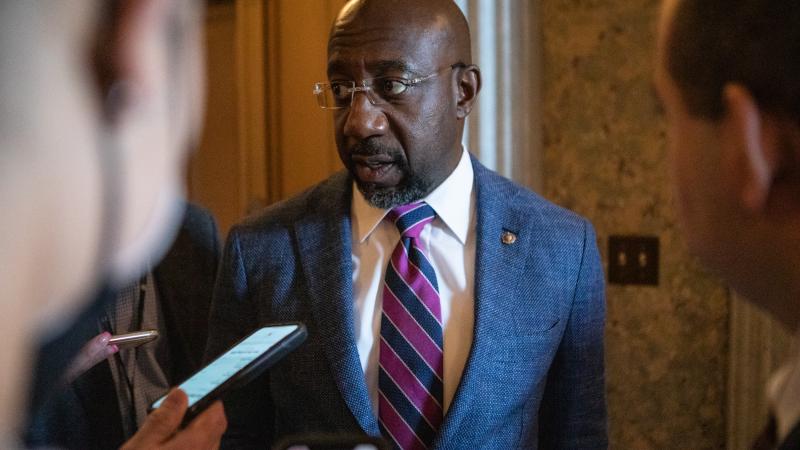Liz Cheney asked about prosecuting Ray Epps for Jan. 6 role, says DOJ makes decision, not Congress
"Why did the January 6 committee not recommend his arrest?" a student asked.
Rep. Liz Cheney (R-Wyo.) was asked on Friday by a couple of students at the University of Chicago about why the Jan. 6th House committee hasn't recommended the arrest of Ray Epps, who trespassed on restricted Capitol grounds and urged other protesters to enter the building during the Jan. 6 riot.
Cheney, who lost her primary this year after voting to impeach former President Donald Trump and leading the Jan. 6 House committee, was at the university to discuss her legislative career and the future of the Republican Party, during which she took questions from students.
The congresswoman was first asked about Epps by a sophomore who noted that the FBI created an alert on Epps, only to later rescind it, and that he was interviewed by the Jan. 6 House Committee twice. He added that while some Jan. 6 defendants who never entered the Capitol have been arrested, Epps has not.
"Why did the January 6th committee not recommend his arrest?" the student asked.
Cheney replied, "The January 6th committee does not arrest people or recommend arrest. We are a member of the legislative body. Law enforcement and arresting people is the obligation and responsibility of the Justice Department.
"The conspiracy theory about Ray Epps is just a lie, it's just not true. There's a conspiracy theory, obviously I've seen it out there, and it's one of those pieces of what we've seen around January 6th that is pushed by people that want to suggest that this attack was something other than what it really was."
She acknowledged that the committee interviewed Epps and that the DOJ "has been very clear that Mr. Epps has no connection to being under their employment, did not on January 6th, they've done everything possible, as has the committee, to put to rest this conspiracy theory.
"And in fact, you know, I think Mr. Epps' life, you know, has really – he's faced tremendous threat, his family has faced tremendous threat, because of this lie."
Epps has never been arrested by the FBI or prosecuted by the Justice Department, despite videos of him urging people to enter the Capitol and his confession to trespassing on restricted grounds. This has fueled theories that he may be working for the FBI, but Epps has repeatedly denied the allegation.
Cheney was later asked a similar question by another sophomore who noted that Epps' actions were similar to the Proud Boys members who were prosecuted, which the congresswoman had cited during a committee hearing in June.
The student said that Epps' actions weren't part of a conspiracy theory, noting that The New York Times reported on the videos of Epps.
"That's not a conspiracy theorist [sic]. We have an actual insurrectionist on tape, and yet, he's escaped prosecution. So let me just ask you right here: do you demand the prosecution of Ray Epps? He's an actual insurrectionist on tape. Do you demand his prosecution?"
The student was booed by others in the crowd.
Cheney said she'd answer the question because she thought there was "confusion about the role of Congress and confusion about who makes decisions about prosecutions."
She explained that she saw the video tape of Epps and that she didn't believe anyone was denying its existence or that many other people caught on video during the riot have been prosecuted for their actions on Jan. 6.
Cheney said that the DOJ makes decisions about prosecutions and again mentioned that "there are conspiracy theories around the role that he was playing that day.
"People are pushing this notion that somehow he was doing what he was doing because the federal government was telling him to. That's not true, there's no evidence of that, and the Justice Department and the committee have said that clearly."














